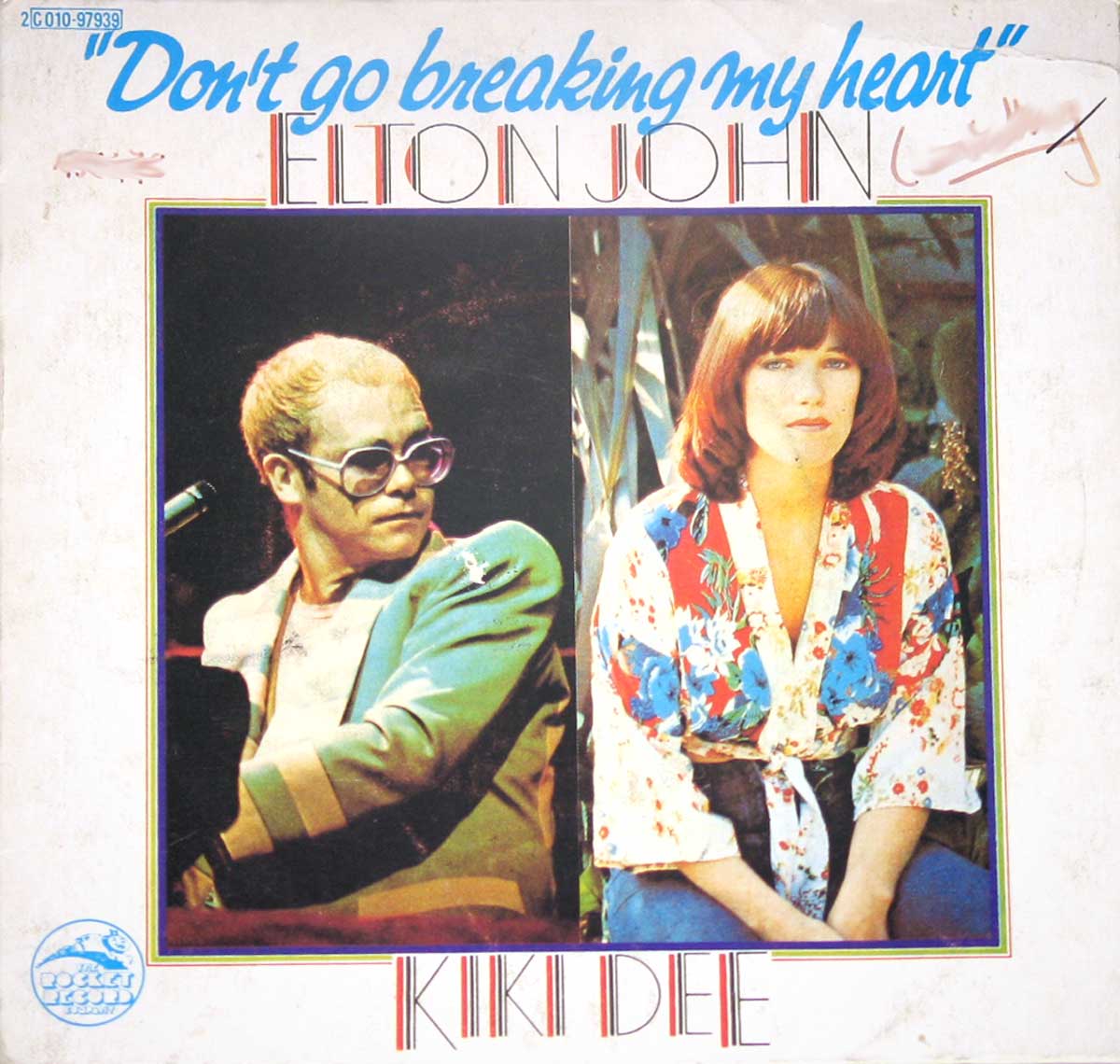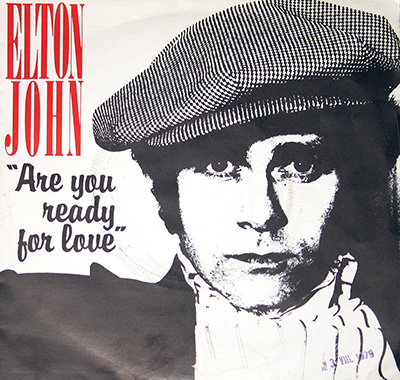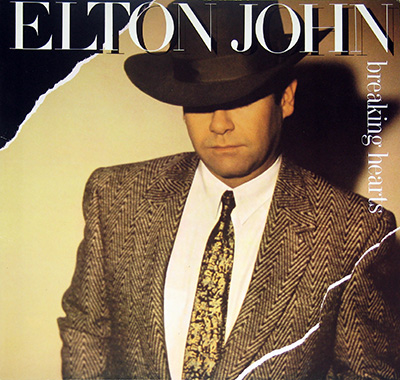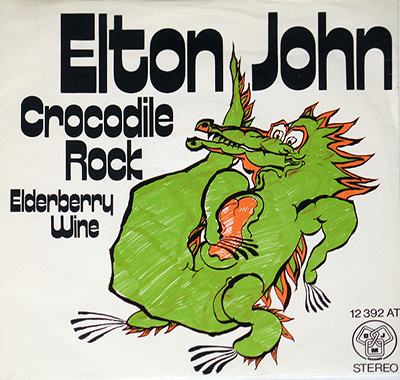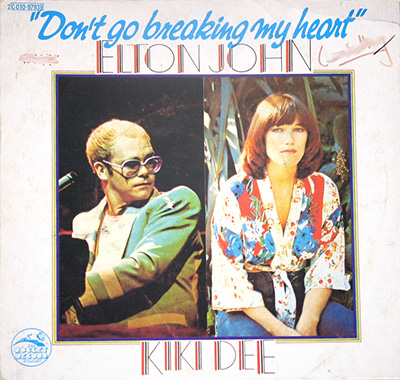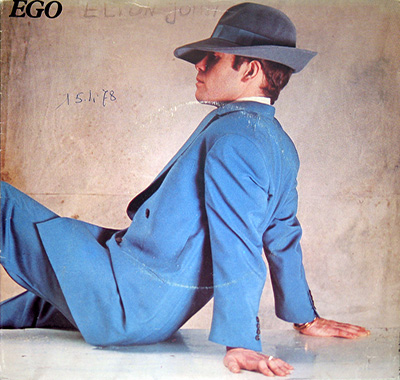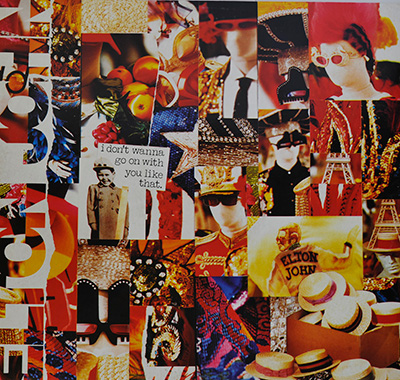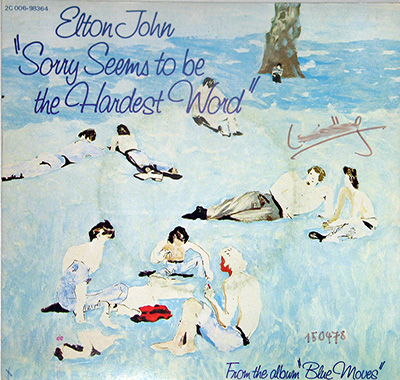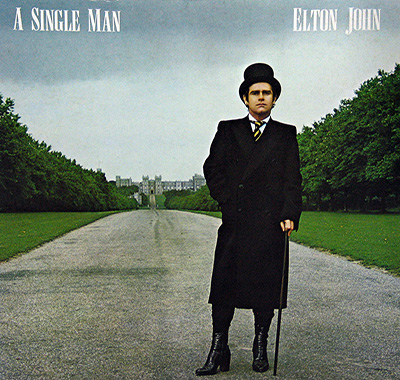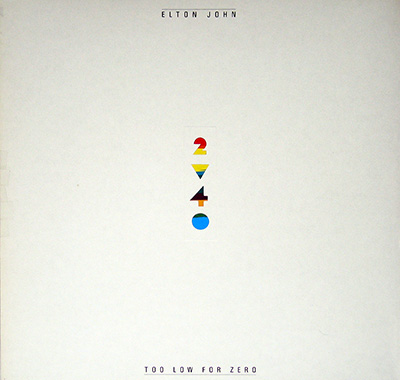"Don't Go Breaking My Heart" Album Description:
Elton John and Kiki Dee's "Don't Go Breaking My Heart" is a timeless classic that epitomizes the musical landscape of the 1970s. Released as a 7" vinyl single in 1976, this particular edition with the picture sleeve adds a visual element to the auditory experience, making it a cherished collector's item for enthusiasts of that era.
The year 1976 was a pivotal time for the music industry, marked by the dominance of disco, the continued influence of rock and roll, and the emergence of punk. Elton John, a prominent figure in the music scene, collaborated with Kiki Dee, a talented singer, to create a song that would capture the hearts of listeners around the world.
Gus Dudgeon, the renowned producer behind this musical gem, played a crucial role in shaping its sound. Dudgeon's production style, characterized by lush arrangements and attention to detail, contributed to the song's infectious energy and memorable melody. The chemistry between Elton John and Kiki Dee is palpable, as their voices harmonize seamlessly, delivering a performance that resonates with the emotions of the lyrics.
The choice of a 7" vinyl format for the single was typical of the era when vinyl records were the primary medium for music consumption. The tangible nature of vinyl added a tactile dimension to the music, and collectors cherished these physical artifacts. The inclusion of a picture sleeve further enhanced the appeal, providing fans with a visual representation of the artists and the era.
The fact that this particular edition was made in France by Pathe Marconi adds an interesting international flavor to the narrative. It reflects the global reach of Elton John and Kiki Dee's music, underlining the universality of their appeal. The 1970s were a time when music transcended borders, and artists collaborated across continents, creating a rich tapestry of diverse sounds.
KIKI DEE Biography:
Born Pauline Matthews on 6 March 6 1947, in Little Horton, Bradford, Yorkshire, England, Kiki Dee is a renowned British pop singer, songwriter, and actress. Renowned for her soulful vocals and catchy tunes, she has garnered acclaim for her extensive career spanning over five decades.
Dee's musical journey began in the late 1960s, when she embarked on a solo career, releasing her debut single "Early Night" in 1965. Her breakthrough came in 1973 with the release of her English version of VŽronique Sanson's "Amoureuse," titled "I've Got the Music in Me," which peaked at number 11 on the UK Singles Chart.
Dee's success skyrocketed in 1976 when she teamed up with Elton John for a duet of his song "Don't Go Breaking My Heart." The song became an international sensation, topping charts worldwide, including the US Billboard Hot 100 and the UK Singles Chart.
This collaboration marked the beginning of a fruitful friendship and working relationship between Dee and John. They went on to record several other duets, including "True Love" (1978) and "Philadelphia Freedom" (1975), further cementing their status as a musical duo.
